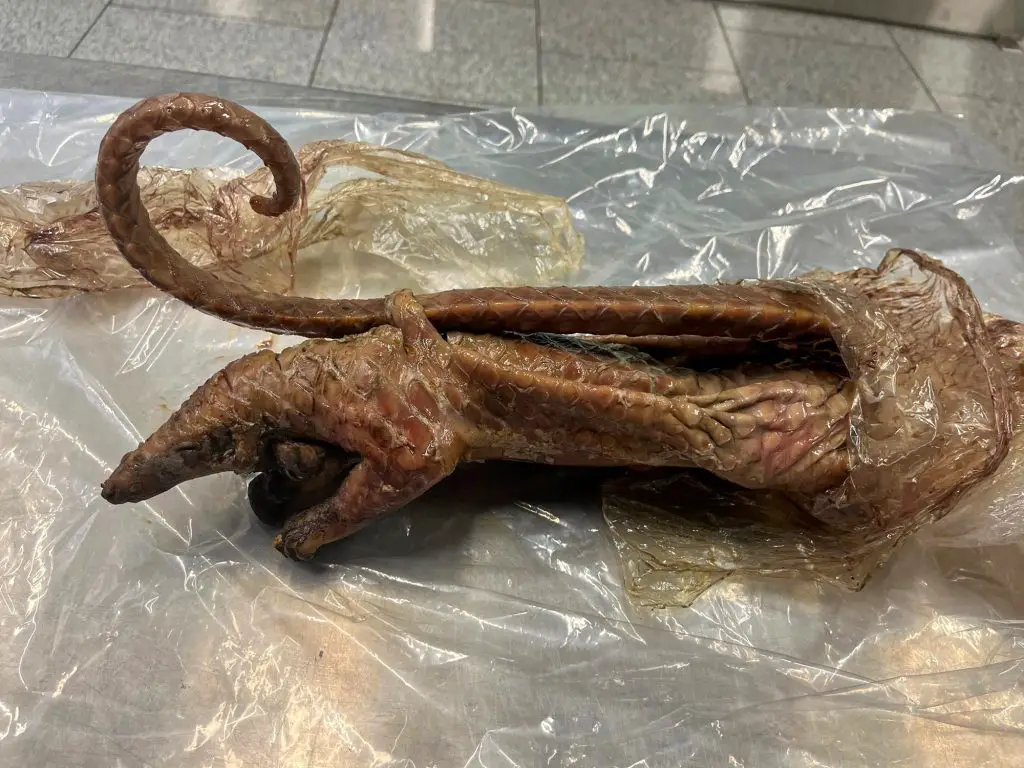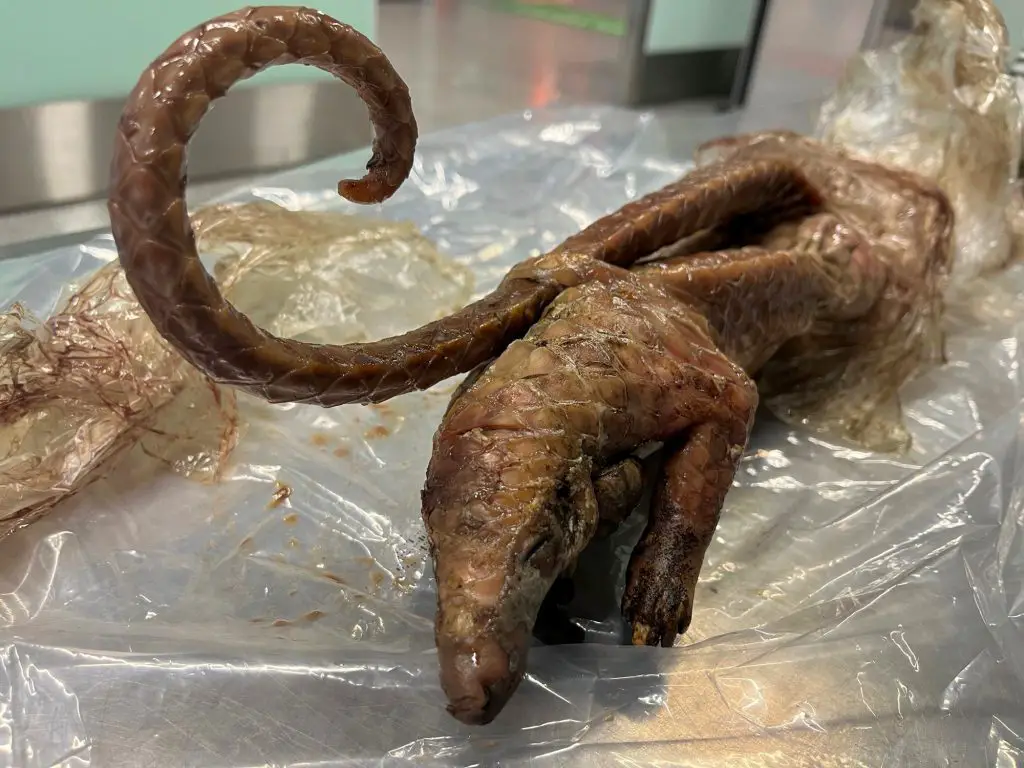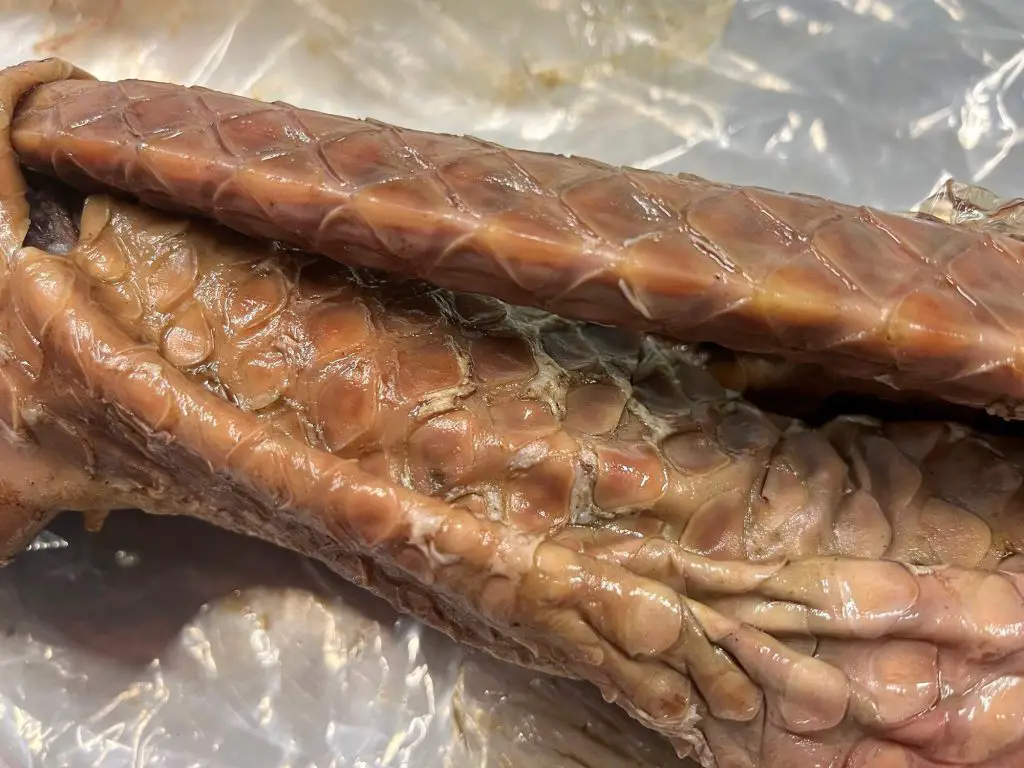Customs officers at Duesseldorf Airport have seized a skinned and roasted protected pangolin that a woman from Ghana was planning to eat.
The incident took place at Duesseldorf Airport, which is located in the western German state of North Rhine-Westphalia, on 12th January 2022, but the information has just been revealed by German customs.
The Duesseldorf customs office said in a statement obtained by Newsflash: “A pangolin was found by officials at Duesseldorf Airport Customs on a traveller from Ghana. On a flight from Ghana via the Netherlands on 12th January 2022, they checked a person traveling alone.”

The woman has not been named, but the customs office revealed that she was 42 years old. They also said that the pangolin was in its own piece of luggage dedicated specifically to the transportation of groceries.
The customs office said: “The 42-year-old Ghanaian, who lives in [the nearby city of] Moenchengladbach, was carrying three suitcases, one of which was reserved exclusively for groceries. In addition to fish and vegetables, which were considered harmless under import law, the customs officers also found a well-packaged plastic bag. Wrapped in it, the skinned and prepared pangolin.”
The German customs office reminded travellers that pangolins are protected species and that importing them was strictly prohibited.
It said: “Pangolins are particularly protected under both European law and the Washington Convention on International Trade in Endangered Species, they have the highest protection status. This means that importing and trading in them is strictly prohibited.”

The customs office added: “When asked about this by customs officials, the traveller said the pangolin is a delicacy she bought from a farm in Ghana and intends to share with her family.”
The customs office revealed that the pangolin was seized and destroyed.
It added: “However, the traveller did not enjoy this dubious delicacy. While still on site, the customs officers initiated criminal proceedings against her on suspicion of violating species protection regulations. The pangolin was confiscated and then destroyed.”
It is currently unclear what subspecies of pangolin the woman was transporting. Three kinds of pangolin are listed as critically endangered (Manis culionensis, M. pentadactyla and M. javanica), three are listed as endangered (Phataginus tricuspis, Manis crassicaudata and Smutsia gigantea) and two are listed as vulnerable (Phataginus tetradactyla and Smutsia temminckii) on the International Union for Conservation of Nature’s (IUCN) Red List of Threatened Species.

Pangolins came to be widely talked about in 2020 after researchers hypothesised that SARS-CoV-2, the virus which causes COVID-19, had originated in bats and was circulating among pangolins prior to infecting humans.
It is not thought that the woman was detained, and it is unclear if at the time of writing if she had been charged with any crimes.



